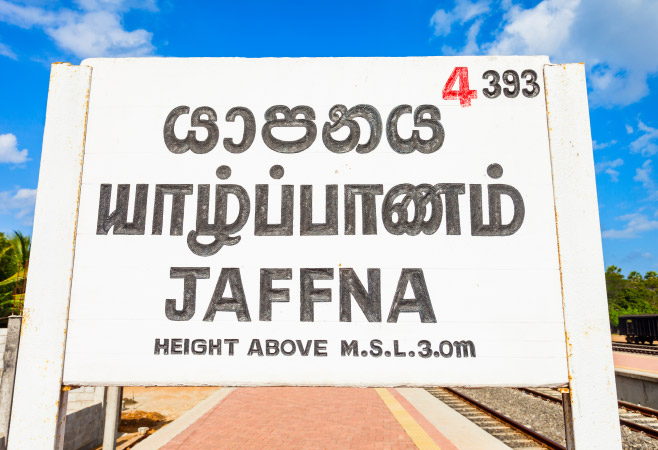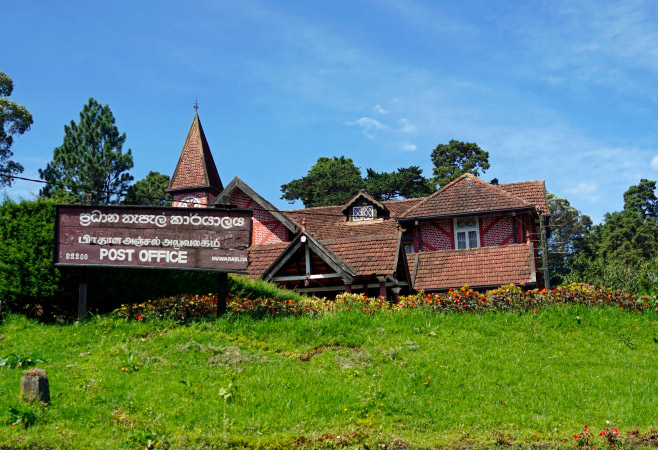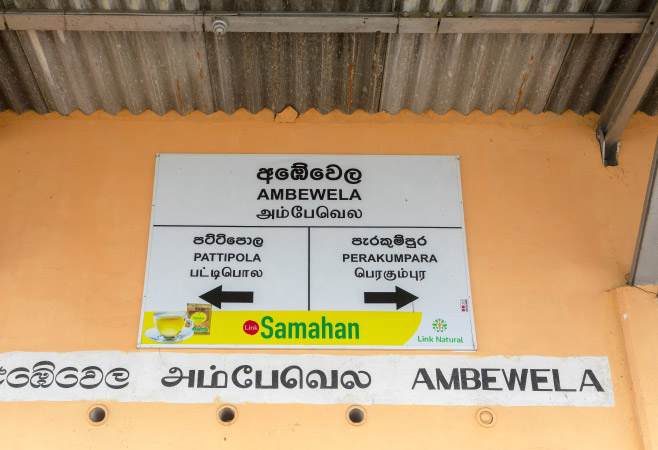Tamil Language in Sri Lanka: A Beginner’s Guide for Travelers
Sri Lanka is a highly cultured and historically rich nation with antique and varied languages. It has some of the most outstanding languages, such as Tamil, which is spoken by millions of people on the island. When you are on the verge of visiting Sri Lanka, learning Tamil will make it more enjoyable.
This blog will discuss the history of Tamil in Sri Lanka, why Tamil exists there, and how you can learn more about the people and the places through language.
 Ancient Tamil words in stone script
Ancient Tamil words in stone script
What is the Tamil in Sri Lanka?
Tamil is one of the official languages of Sri Lanka, alongside Sinhala. It is part of the Dravidian language family and has been spoken on the island for over 2,000 years, especially among Tamil communities. It is used among the Sri Lankan Tamil, Indian Tamil communities and Muslim (Moors) speaking in various regions.
Tamil in Sri Lanka Despite the Tamil has been spoken in Sri Lanka for more than 2,000 years. It is deeply connected with the ancient Jaffna Kingdom, South Indian dynasties, and maritime trade across the region.
Major concentration of the Sri Lankan Tamils is found in the Northern and Eastern Provinces, with cities of Jaffna, Batticaloa, and Trincomalee being the major areas of distribution. Indian Tamils are plantation laborers imported by the British colonialists into the country, and their progeny occupy the Central Highlands- Nuwara Eliya and Hatton.
The Sri Lanka Tamil culture is blessed with classical music, Bharatanatyam dance, Hindu temples, and literature. Language is not only a medium of communication, but it is a carrier of identity, strength, and heritage. Once you learn Tamil, you have the experience of thousands of years of poetry, philosophy, and storytelling at your disposal.
Is Tamil common in Sri Lanka?
Yes. Around 15–20% of Sri Lanka’s population speak Tamil: about 11–12% are Sri Lankan Tamils, while 4–5% are Indian Tamils descended from plantation workers.
The Difference between Tamil in India and Sri Lanka
Whereas Tamil is present in Sri Lanka and the state of Tamil Nadu (India), it may have certain visible differences in accent and vocabulary, as well as usage. The Sri Lankan Tamils tend to be more conservative in language, with older forms of language that are lost in the Indian Tamil.
Key Differences:
- Pronunciation: Tamil of the Sri Lankan people is less harsh as it is formal in nature.
- Vocabulary: Words used in Sri Lankan Tamil are specific to the language, i.e., the local flora, fauna, and customs.
- Dialects: A variety of dialects exist, including Jaffna Tamil, Batticaloa Tamil, and Hill Country Tamil, and one can get a taste of them.
- Despite these differences, people from both areas can understand each other on most occasions.
 A Street sign in Tamil, Sinhala, and English languages
A Street sign in Tamil, Sinhala, and English languages
Where Tamil Is Spoken in Sri Lanka
The language is common in a number of areas, and understanding the areas where it is most spoken could aid in planning travels.
Northern Province:
- Jaffna: The epicentre of the Sri Lankan Tamil culture. This is mainly spoken in Tamil.
- Kilinochchi, Mullaitivu: Largely Tamil-speaking as well.
Eastern Province:
Batticaloa, Trincomalee, Ampara: Tamil is spoken in addition to Sinhala and English. The dialect used here is musical and different.
Central Highlands:
Nuwara Eliya, Hatton, Badulla: The Indian Tamils work in tea plantations. Tamil is spoken in everyday life and in business.
Urban Areas:
Colombo: A multi-cultural melting pot with a large minority speaking Tamil, particularly in such neighborhoods as Wellawatte.
In case you are travelling to these areas, knowing some of the Tamil phrases would help you a long way in developing a rapport and getting along with the local people.
Why Tamil is important to Foreigners in Sri Lanka
Provided you intend to visit Sri Lanka, and in particular north or east Sri Lanka, then learning Tamil can help you in a variety of ways:
Communication:
In rural Tamil-speaking areas, English is less common, but in major towns and cities like Colombo, Jaffna, and Trincomalee, many people can communicate in English.
Basic Tamil assists in directions, shopping, and eating.
Cultural Respect:
Speaking Tamil is respecting local identity.
Such little words as Nandri (Thank you) can create goodwill.
Safety and Navigation:
The knowledge of signs and announcements in Tamil will be useful in distant regions.
Travelers who learn to negotiate in the language of locals have a chance of getting their assistance.
Authentic Experiences:
The Tamil language will open the gates of homestays, local restaurants, and off-the-beaten-path experiences.
You will have access to customs, tales, and traditions tourists do not see, and rare scholarship.
 Traditional Tamil script on the sign for the Post Office
Traditional Tamil script on the sign for the Post Office
How to learn Tamil: Tips on learning Tamil for travelers and language learners
Tamil learning might be a challenge, yet it is so worth it. The following are some of the valuable tips:
Begin with the Fundamentals
Only a few important phrases can allow you to meet people, express regard, and make your everyday life a lot more comfortable. The following phrases will be the most helpful in your trip.
Tamil Phrases You Need in Sri Lanka
Greetings and Basic Politeness
These are universal greetings used for both hello and goodbye, and it is also a sign of deep respect.
- Hello / Goodbye: Vanakkam (வணக்கம்)
- Thank you: Nandri (நன்றி)
- How are you?: Eppadi irukkinga? (எப்படி இருக்கீங்க?)
- I'm fine: Naan nallaa irukken (நான் நல்லா இருக்கேன்)
- Excuse me / Sorry: Mannikkanum (மன்னிக்கணும்)
- Yes: Aamaam (ஆமாம்)
- No: Illai (இல்லை)
Getting Around and Asking for Directions
These phrases will be invaluable for navigating buses, trains, and tuk-tuks, especially in Tamil-speaking regions where English might be less common.
- Where is...?: ...yenga irukku? (...எங்கே இருக்கு?)
- How much?: Evvalavu? (எவ்வளவு?)
- I want to go to...: Naan ... poganum (நான் ... போகணும்)
- Stop here: Ingae niruthungal (இங்கே நிறுத்துங்கள்)
Dining and Shopping Phrases
The best way to experience a culture is through its food. These phrases will help you navigate a restaurant or market with ease.
- This is very good: Idhu romba nallaa irukku (இது ரொம்ப நல்லா இருக்கு)
- Water, please: Thanni kudunga (தண்ணி குடுங்க)
- The bill, please: Bill kudunga (பில் குடுங்க)
- What is this?: Idhu enna? (இது என்ன?)
 Public multilingual signboard with Tamil language at Ambewela Railway Station
Public multilingual signboard with Tamil language at Ambewela Railway Station
Tips: Practice with Locals
Sri Lankans are warm and welcoming. If you try speaking Tamil—even imperfectly—you’ll be met with smiles and encouragement.
Tamil and Religion: Language in Spiritual Life
Tamil plays a central role in Hindu religious practices in Sri Lanka. Many temples conduct rituals, prayers, and festivals in Tamil.
Christian churches and Muslim mosques in the Tamil-speaking regions also use the language.
Sacred Places:
- Nallur Kandaswamy Temple (Jaffna): A big Hindu temple in which Tamil hymns and chants are indispensable.
- St. Mary Cathedral (Jaffna): The sermons and liturgy are in Tamil.
- Batticaloa and Kattankudy mosques: The main language of worship is Tamil.
FAQ: Tamil Language in Sri Lanka
Here are some common questions travelers have about the Tamil language in Sri Lanka.
Is Tamil an official language in Sri Lanka?
Yes, Tamil is an official language in Sri Lanka alongside Sinhala.
Where is Tamil most commonly spoken?
Northern and Eastern Provinces, and parts of the Central Highlands.
Can I get by with English in Tamil-speaking areas?
In cities, yes. In rural areas, basic Tamil is helpful.
Is Sri Lankan Tamil different from Indian Tamil?
Yes, in pronunciation, vocabulary, and dialect.
Is Tamil used in religious practices?
Extensively, especially in Hindu temples and Tamil-speaking churches.
Do people in Sri Lanka speak Tamil differently from India?
Yes, there are some differences in pronunciation, vocabulary, and grammar between the Tamil spoken in Sri Lanka and that spoken in India, much like American and British English. However, they are mutually intelligible.
Can I get by with just English?
In most tourist areas, hotels, and restaurants, you can get by with just English. However, in the northern and eastern regions and in rural areas, English may be less common, and knowing some Tamil will be very helpful.
Are there different scripts for Tamil?
Tamil has its own unique script, which is different from the Sinhala script. You will see it on road signs and in newspapers, especially in Tamil-majority areas.
Is the Tamil spoken in the Hill Country the same as in Jaffna?
The dialects have some differences, especially in pronunciation and some vocabulary, due to the different histories of the two communities. However, they are essentially the same language and mutually understandable.
How important is body language when speaking Tamil?
It’s very important. A smile and a slight bow with your hands pressed together when saying "Vanakkam" shows great respect.
Do I need to learn Tamil to visit Sri Lanka?
Not mandatory, as English is common in tourist areas, but learning basic Tamil phrases enhances interactions in Tamil-speaking regions.
How does Tamil differ from Sinhala?
Tamil is a Dravidian language with a unique script and grammar, while Sinhala is Indo-Aryan, with distinct linguistic roots.
Are there Tamil cultural events for tourists?
Festivals like Thai Pongal and Deepavali, plus dance and music performances, are open to visitors in Tamil regions.
Is Tamil signage common in Sri Lanka?
Yes, public signs in Tamil-speaking areas and government buildings often feature Tamil alongside Sinhala and English.
Are there Tamil-language tours in Sri Lanka?
Yes, especially in Jaffna and Batticaloa.
What’s the best way to learn Tamil for travel?
Focus on greetings, numbers, and food terms.
How do I say "I’m a vegetarian" in Tamil?
Naan saivam (நான் சைவம்).
Conclusion
In Sri Lanka, Tamil is not only a language, it is the opening to a wonderful cultural heritage. Even a little Tamil, whether you are sightseeing the ancient temples of Jaffna or talking to locals in Batticaloa, can add a higher level to your travel experience. Ready to say "Vanakkam" to Sri Lanka?
Related Articles
- Mihintale Temple Travel Guide: What to See & When to Visit
- Udawalawe National Park Guide: Safari, Elephants & Travel Tips
- What to Do in Beruwala: Top Things to See & Do
- Things to Do in Hambantota, Sri Lanka: A Practical Travel Guide
- Kumana National Park in Sri Lanka: A Complete Traveler’s Guide
- Kandy Weather Guide: Best Time to Visit, Seasonal Travel Guide
- Top 12 Things to Do in Arugam Bay You Can’t Miss
- Guide to Visit Minneriya National Park in Sri Lanka
- Planning a 3-Week Holiday in Sri Lanka
- Top Sri Lanka Street Foods You Must Try
HOW CAN WE HELP?
APPLY WITH CONFIDENCE
|
|||











